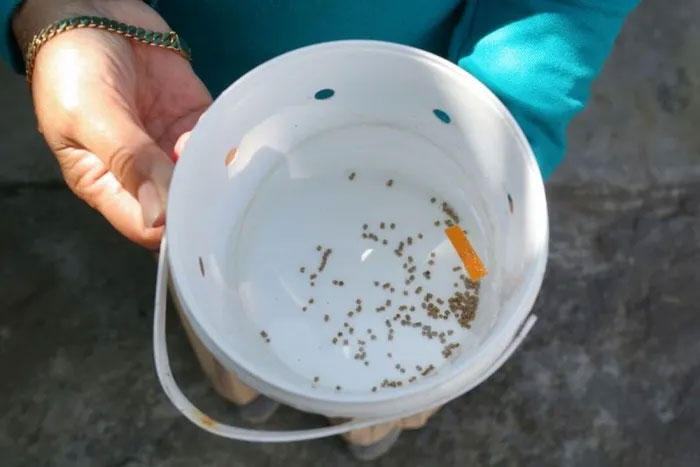Wolbachia is a common type of bacteria found in 60% of insect species, including some mosquitoes, fruit flies, moths, and dragonflies. However, Wolbachia is not found in Aedes aegypti, also known as the Asian tiger mosquito, which carries the virus that causes dengue fever.

Wolbachia mosquito eggs in an egg incubator in Yogyakarta, Indonesia. (Photo: Reuters).
“We are breeding ‘good’ mosquitoes. Mosquitoes carrying the dengue virus will mate with mosquitoes carrying Wolbachia bacteria. This will produce Wolbachia mosquitoes, a type of ‘good’ mosquito. Therefore, even if they bite humans, they will not cause any harm,” said Purwanti, a researcher at the non-profit World Mosquito Program (WMP).
Since 2017, a joint study conducted by WMP at Monash University in Australia and Gadjah Mada University in Indonesia has released laboratory-bred Wolbachia mosquitoes into several dengue fever “hotspots” in Yogyakarta, Indonesia.
Results from the trial published by the New England Journal of Medicine in June showed that the deployment of Wolbachia-carrying mosquitoes reduced dengue cases by 77% and hospitalizations due to the disease by 86%.
“We have confidence in this technology, especially in areas where Aedes aegypti mosquitoes are the highest disease vectors,” Adi Utarini, the research team leader at WMP, told Reuters.
According to the World Health Organization (WHO), the number of dengue cases worldwide has rapidly increased in recent decades, with about 50% of the global population at risk of infection. It is estimated that there are approximately 100-400 million cases of dengue reported each year.
“All three of my children have had dengue fever and had to be hospitalized. I am looking for ways to keep my living environment clean,” said Sri Purwaningsih, 62, a volunteer participating in the WMP program.

















































